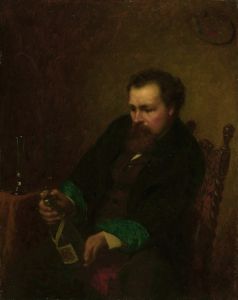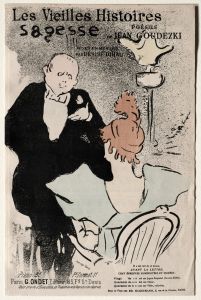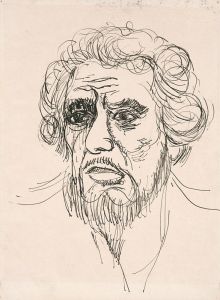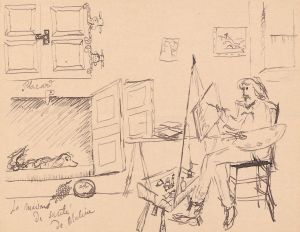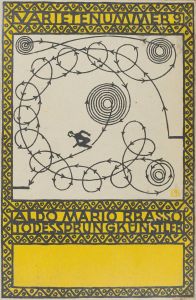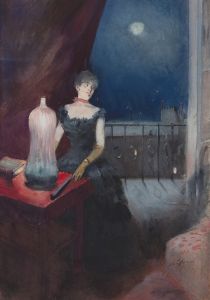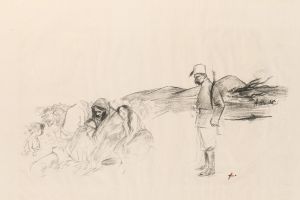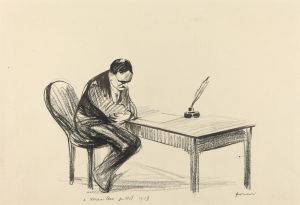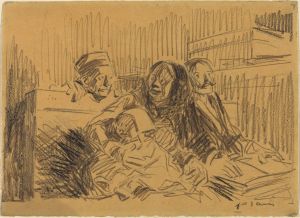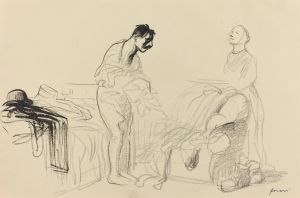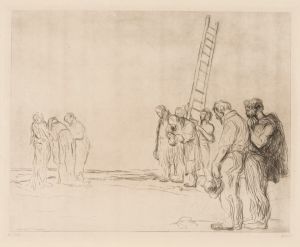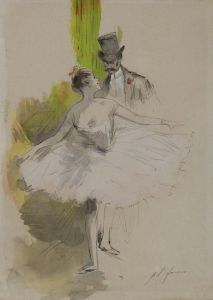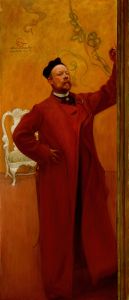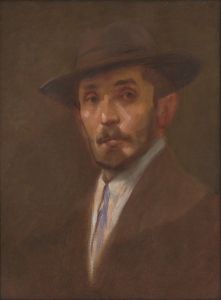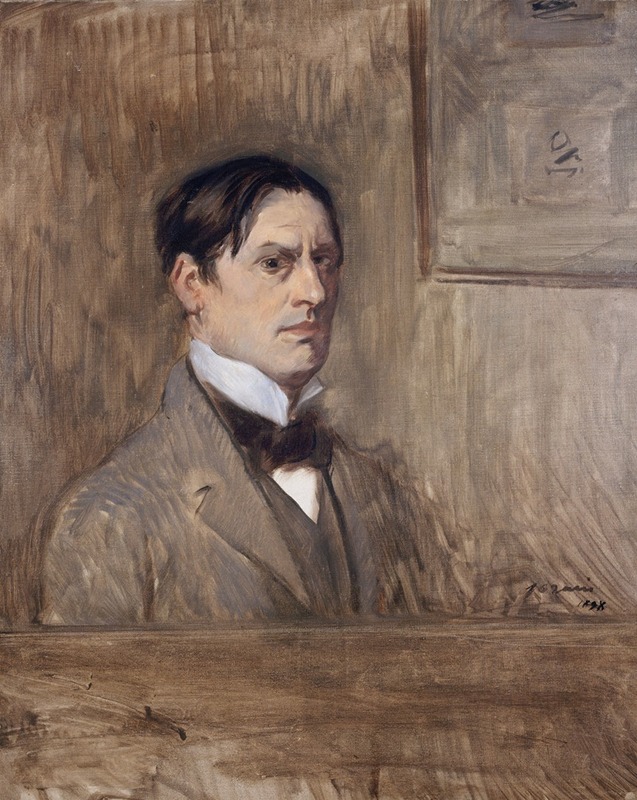
Autoportrait
A hand-painted replica of Jean-Louis Forain’s masterpiece Autoportrait, meticulously crafted by professional artists to capture the true essence of the original. Each piece is created with museum-quality canvas and rare mineral pigments, carefully painted by experienced artists with delicate brushstrokes and rich, layered colors to perfectly recreate the texture of the original artwork. Unlike machine-printed reproductions, this hand-painted version brings the painting to life, infused with the artist’s emotions and skill in every stroke. Whether for personal collection or home decoration, it instantly elevates the artistic atmosphere of any space.
Jean-Louis Forain was a French Impressionist painter, lithographer, watercolorist, and etcher, known for his depictions of Parisian life. He was born on October 23, 1852, in Reims, France, and became one of the notable figures in the Impressionist movement. Forain's work often focused on scenes from everyday life, capturing the vibrancy and complexity of urban existence in late 19th and early 20th century Paris.
"Autoportrait" by Jean-Louis Forain is a self-portrait that reflects the artist's introspective nature and his mastery of capturing human expression. While specific details about this particular painting are scarce, self-portraits generally offer insight into the artist's self-perception and artistic style. Forain's work is characterized by a keen observation of social settings and a deftness in rendering the human figure, often with a sense of immediacy and movement.
Forain was deeply influenced by his contemporaries, including Edgar Degas, with whom he shared a close friendship. Degas's influence is evident in Forain's focus on the human figure and his interest in scenes of modern life. Forain participated in four of the eight Impressionist exhibitions between 1879 and 1886, which helped establish his reputation as a significant artist of the movement.
In addition to painting, Forain was a prolific illustrator and caricaturist, contributing to various publications such as "Le Figaro" and "Le Courrier Français." His illustrations often contained satirical elements, critiquing the social and political issues of his time. This aspect of his work demonstrates his versatility and his ability to engage with contemporary themes beyond the canvas.
Forain's style evolved over the years, and he became known for his use of light and shadow to create mood and atmosphere. His palette often included muted tones, which added a sense of realism and depth to his work. This approach is likely reflected in his self-portraits, where he would have employed these techniques to convey his own likeness and character.
Throughout his career, Forain remained committed to exploring the human condition, whether through the lens of everyday life or through more personal introspection as seen in his self-portraits. His work continues to be appreciated for its technical skill and its ability to capture the essence of his subjects with both empathy and critical insight.
Jean-Louis Forain passed away on July 11, 1931, in Paris, leaving behind a legacy that includes a diverse body of work spanning painting, illustration, and printmaking. His contributions to the Impressionist movement and his unique perspective on Parisian society have cemented his place in art history. While specific information about "Autoportrait" is limited, it can be appreciated as part of Forain's broader oeuvre, which offers a window into the life and times of a remarkable artist.





